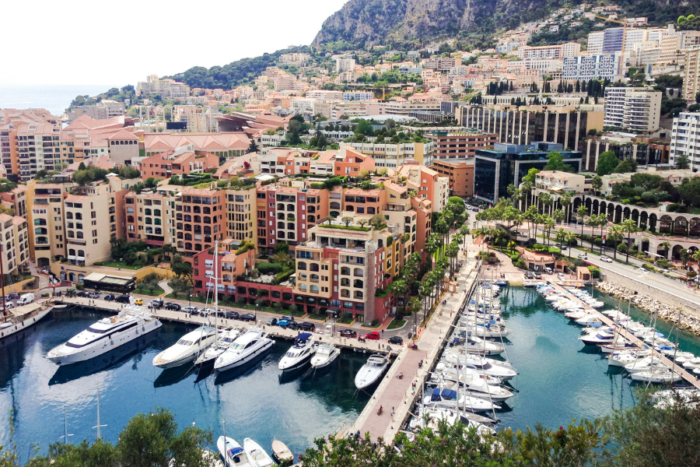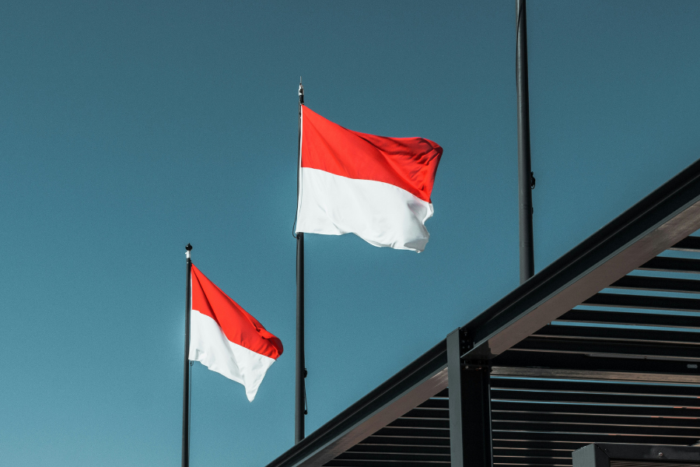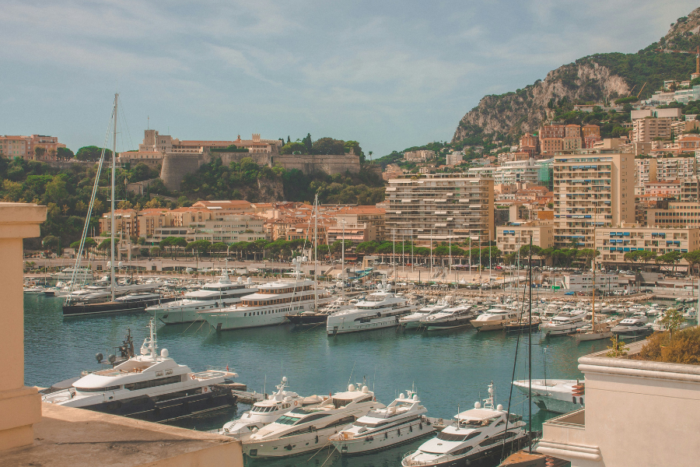Taxes in Monaco: The Ultimate Guide
March 21, 2025
Monaco is where the world’s wealth elites come to play – and protect their wealth.
This glittering French Riviera jewel – within Europe and, yet, in many ways still without – has long reigned supreme as one of the most exclusive places on Earth.
Home to princes, movie stars and billionaires, the sovereign city-state of Monaco is the chosen destination of countless tax-savvy entrepreneurs who value luxury as much as financial freedom.
Known for its dangerous Grand Prix, legendary casinos, and harbour packed with superyachts, Monaco is the playground of the ultra-wealthy.
But, beyond the glitz and the glamour, it offers something even more alluring – a financial regime that has shielded its residents from income tax for more than 150 years.
Back in 1869, the ruling Grimaldi family made the radical decision to fund the municipality’s entire costs with the profits extracted from gamblers at the Monte Carlo casino.
Since then, Monaco has been the world’s most iconic tax haven, offering the world’s greatest financial whales a rare fiscal sanctuary.
But does zero income tax really mean zero tax? Not quite.
So, the Nomad Capitalist team has decided to clear up a few of the persistent myths that swirl around the well-groomed ankles of Monaco.
That means we’ll tackle such tricky issues as whether Monaco is part of France? The official language is French and it’s part of the French Riveria, after all. Plus, the Grimaldi seem… French.
Not exactly. Monaco remains a sovereign country with a population of just under 39,000; it sets its own tax rates (thankfully, as France’s current top income tax rate is an eye-watering 45%.
As for the Grimaldis, despite their fairy tale name, they’re not French. They’re Italian, or Genoese, to be precise. They’ve ruled Monaco since 1297 when their ancestor, Francois (no, that doesn’t mean he was French), dressed up as a Franciscan monk (no, still not French) and seized the fortress.
But it’s no longer a realistic option to dress as a friar and seize the city, so you’ll need to find another way in, and that’s where the problems start.
Exclusive really does mean expensive and residency comes with a price tag that only the ultra-wealthy can afford. Plus, there’s an art to talking to the Monaco banks.
Luckily, the Nomad Capitalist team has sailed into this particular harbour many times before. So, they’ve broken it down in this comprehensive guide to Monaco and its taxes.
Pros and Cons of Expat Living in Monaco

Taxes are important, no doubt, but no man (or woman) is an island, and you’ll have to weigh up all aspects of living in Monaco. With that in mind, here are some of the biggest pros and cons.
On the Plus Side
- Monaco taxes: Monaco has no income tax, wealth tax, property tax or tax on capital gains, dividends, investment income or directors’ fees. It’s a tax haven in the true sense of the word.
- Convenient location: Set on the Mediterranean Sea close to Italy and the French Riviera, Monaco is just a few hours from Europe’s most important cities.
- Lifestyle: The country has a stunning natural setting, a high quality of life, excellent education and medical services.
- Banking: Monaco is a private banking hub with some of the world’s most prestigious wealth management expertise.
Monaco’s Negatives Include
- High cost of living: Monaco is one of the most expensive places in the world. Property, rent, entertainment, food and utilities all come at a premium.
- Limited space: Monaco is very small (only 2 square kilometres) and can feel crowded even for those who can afford the most sought-after real estate. If you want space and privacy, you might not find it here.
- Lack of job opportunities: Given its size and attractiveness for the ultra-wealthy, regular economic activity and jobs outside its luxury industry are few and far between.
- Lack of diversity: With a population of wealthy, mainly white Europeans, the principality has little cultural diversity.
Personal Income Taxes in Monaco
The income tax rate in Monaco is zero for anyone other than French nationals.
As a result of a tax treaty, French people pay income tax on all earnings made in Monaco. Everyone else pays nothing.
However, as we’ve highlighted, some taxes still exist.
For example, if you own property as an individual and rent it out, there’s no tax on your rental income. However, rental income will be taxable if you own the property through a company.
Unlike neighbouring France, Monaco has no wealth tax and no taxes for holding properties.
However, one tax you can’t escape in Monaco is value-added or sales tax. This is levied at a standard rate of 20% and a reduced rate of 5.5% on some goods and services.
There’s also a stamp duty to pay at different rates in different circumstances.
This applies to documents used for civil and legal purposes or needed to prove something in a court of law.
If you rent a property in Monaco, a 1% stamp duty is payable on your tenancy agreement, calculated based on the annual rent and charges like maintenance fees.
If you buy a property with a mortgage, there’s a stamp duty tax of 3% of the mortgage amount.
If you sell a property to an individual, you pay 4.55% of the sale price in stamp duty.
For property held in a company, the stamp duty rises to 6.5%. If you sell movable assets like works of art, there’s a 5% stamp duty levy, which is sometimes reduced to 2% for sales at public auctions.
Finally, if you sell your business, a 7.5% stamp duty charge is applied to the sale value.
Inheritance Tax in Monaco
Another tax that may or may not apply in Monaco is inheritance tax. The amount you pay is based on the market value of the assets at the date of inheritance and ranges from zero to 16%.
Inheritance tax applies to any assets in Monaco, regardless of where the deceased person lived, their domicile, nationality or country of tax residence. It does not apply to your worldwide assets.
The amount depends on how closely the people who inherited it are related to the deceased. So, if you leave your worldly goods to your surviving spouse or children (direct beneficiaries), there is zero tax to pay.
Leaving an inheritance to your brothers or sisters means they’ll be charged an 8% transfer tax. Leave your assets to uncles, aunts, nephews and nieces, and they would pay 10%, while more distant relatives pay 13%.
Finally, anyone outside the family who inherits your Monaco assets will pay 16% to inherit them.
Still, that’s much better than the 40% you’d pay in the UK and other high-tax Western countries.
Corporate Taxes in Monaco
One of the biggest misconceptions is that Monaco has a 0% corporate tax rate.
In the Principality, a business profit tax, as it’s known, is the only direct corporate taxation levied. It only applies to business activities where more than 25% of your turnover is generated outside Monaco.
Therefore, if you set up a company in Monaco and more than 25% of your business transactions occur outside the principality, your trading profits are subject to corporate income tax.
You’re not liable for business profits tax if over 75% of your revenue is made within the Principality.
If a company headquartered in Monaco generates income by selling licenses for intellectual property such as trademarks, patents, industrial techniques or creative copyrights, such gains are subject to taxation.
The standard corporate income tax rate sits at 28%.
That said, if you are the main employee in your Monaco business, you can simply pay yourself a high salary, which will be tax-free. This will also reduce your company’s taxable profits to legally avoid them being taxed.
Monaco Residence and Citizenship Options

There are two main routes to residence in Monaco: residence by independent means and residence by company incorporation.
Under the independent means scheme, you must deposit a minimum of €500,000 in a Monaco bank. In reality, though, the figure is closer to €1 million or even €2 million for some banks to take you on.
You must also have a minimum net worth of over €2 million or an annual salary of €300,000 and rent or purchase a property in Monaco.
The other option, forming a company, does not require making a bank deposit. However, the requirements include having:
- Two years’ rent in a Monaco bank account
- A minimum of two shareholders and two directors
- Minimum paid-in share capital of €150,000
- A minimum of 50 sqm of office premises
- A business plan and budget for the next three years.
If you meet these requirements, you can apply for a renewable one-year temporary residence permit. After three years, you can apply for an ordinary residence permit that is valid for a further three years.
Becoming a naturalised citizen is technically possible by spending ten continuous years (six months a year) in the country. In practice, however, it’s almost impossible to get citizenship.
For more, see our guide on How to Get Monaco Residency and Citizenship.
Monaco Tax and Residence: FAQs
Because of its advantageous personal and corporate tax policies, the principality of Monaco has long been regarded as a tax haven. Individuals there (excluding French nationals) are not subject to income tax, but companies must generate at least 75% of their earnings inside the country to avoid paying taxes on their earnings.
Personal income earned by residents in Monaco is not subject to taxation.
You’re required to deposit a minimum of €500,000 in a Monaco bank to get residence, but in reality, the figure can be as high as €2 million, depending on the bank. You must also rent or purchase a property in Monaco and have a minimum net worth of over €2 million or an annual salary of €300,000.
In theory, you can become a citizen of Monaco after ten years of continuous legal residence, but in practice, it’s rarely awarded. Monaco does not allow dual citizenship.
Yes. Monaco has a business profits tax, a value-added tax, stamp duty, and, in some cases, inheritance taxes.
Yes. At an average of €51,967 per square meter in 2024, Monaco is among the most expensive property markets in the world. Global Property Guide estimates monthly rental prices range from €2,800 for a studio to as much as €25,000 for a three-bedroom apartment. There are no annual property or council taxes for residents.
French nationals residing in Monaco are categorised as those who lived in Monaco for at least 5 years before October 31, 1962. These nationals enjoy the same tax benefits as other nationals, while other French residents are subject to French income tax and income tax dates.
Yes, you can become a tax resident of Monaco and enjoy the 0% personal tax rate without needing full citizenship.
Low- and No-Tax Alternatives to Monaco

Unless you have ties to the region or can’t resist the allure of Monaco’s casinos and beaches, it’s fair to say that most people won’t want to live there permanently.
A major part of Monaco’s appeal is its proximity to the rest of Europe and the UK and its tax regime.
However, you’ll need to be a tax resident to avail of the breaks by spending half the year there – and that comes at a cost. Monaco is a very expensive place, so you’ll pay for the tax advantages it offers.
But you have options, especially if you’re a high-net-worth individual who wants lower taxes, more freedom and a lifestyle that suits your needs.
There are golden visa residence programs in Europe, citizenship-by-investment schemes further afield and territorial tax countries that leave your worldwide income alone, which can all reduce your taxes to nearly zero.
And you may want to live in these places, at least some of the time.
If you’re interested in learning more about Monaco or any other tax-advantageous jurisdiction around the world, we can help.
We’ve helped 2,000+ high-net-worth individuals to ‘go where they’re treated best’, whether by moving their business offshore, relocating to a tax-friendly country or even pursuing a second citizenship.
Our clients are paired with experts in tax, investment strategy, asset protection and immigration to create and execute a holistic plan as unique as their goals. To learn more about how we can help you, get in touch today.



Capital Gains Tax on Real Estate in the United States
For most people, buying a home is the single largest financial commitment they’ll ever make – and often, one of the most stressful. Yet, for many US citizens, home ownership remains a cornerstone of the American Dream. Whether it’s about financial security, independence or building generational wealth, millions strive to get on the first rung […]
Read more

Taxes in Portugal: The Ultimate Guide
Mention ‘tax’ and ‘Portugal’ in the same breath, and for years, the conversation would inevitably turn toward the almost mythical benefits of the Non-Habitual Resident (NHR) regime. Stories of near-zero tax on foreign income became part of the relocation pitch for Lisbon and the Algarve, drawing in thousands of would-be residents. It’s believed over 74,000 […]
Read more

Investing in Oman Real Estate
Oman is quietly emerging as one of the Gulf region’s most compelling – and underestimated – real estate opportunities. Unlike some of its flashier neighbours, Oman isn’t chasing global headlines with record-breaking skyscrapers or high-speed mega-projects. Instead, it offers a more measured, sustainable proposition with a focus on nature, lifestyle and long-term value. Ambitious national […]
Read more



